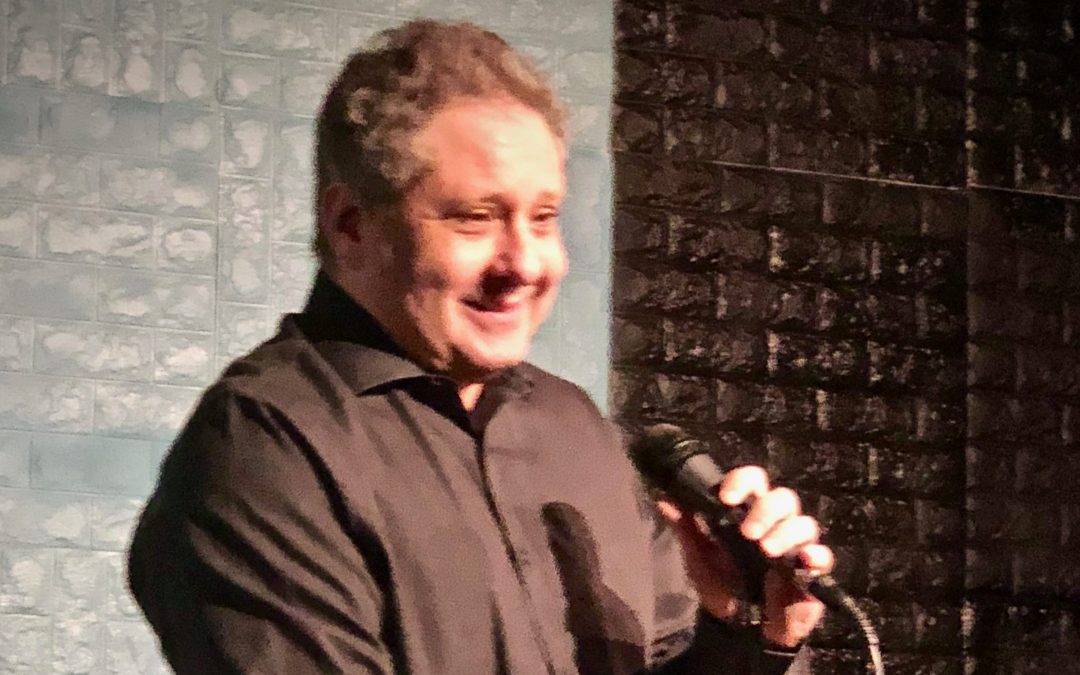You Have To Build The Story First
It seems like most marketers today graduated from the same program whose first dictum is, “If you’ve made them laugh, you’ve done your job.” As a consequence, the public is bombarded with irony, cultural stereotypes, puns, pratfalls, inanimate object narration and haplessness in an attempt to make products more likable–and all of it misses the main point of marketing in order to stand out from the crowd.
Spending mom and dad’s money on college tuition is all well and good, but if you want to learn the basics of good marketing, go to a comedy club and watch a pro work the room.
“It’s not all about the punchline.”
Any halfway decent comic will tell you a joke is made up of two parts: the setup and the punchline. They don’t exist independently; they are intertwined.
A good comic is almost inevitably a good storyteller. They know how to build suspense and tension before popping the bubble to give the audience relief. Pulling those stories together is what builds a comic’s brand. Listen to a routine from the greats like George Carlin, Richard Pryor, or (please don’t crucify me) Bill Cosby, or more contemporary comics like Gilbert Iglesias, Wanda Sykes, Dave Chappelle, Bert Kreischer, or Iliza Shlesinger. The punchline isn’t the only part of the iceberg above the waterline. The beauty of the joke is in the stories they tell, the setups. That’s what brings you in, and keeps your attention.
Contrast that with just about every ad you see on Facebook, YouTube, or everyday ‘ol television, which are a barrage of punchlines delivered to the frontal lobe of your brain.
Sure, I might like the ad. I might even think it’s funny or cleverly quirky (occasionally). If the ad is exceptional, I might even remember the brand behind it or the unique value the advertiser was trying to convey. But more likely, they resemble a bit on a late night television show where the guest reads a series of mean tweets about themselves written by others. It’s a cute gimmick, but utterly forgettable fluff because there’s no connection to me or my experience that makes me care or appeals to my sensibilities.
Unless you’re trying to be the Three Stooges of brands, the plot line and pathos underneath it has to be at the forefront. It is the flour, eggs and milk within the cake. The sales pitch, like the punchline, will never be more than the icing on top, and can never mask the base ingredients the cake has to have to look like a cake and taste like a cake.
I’m using the comic metaphor because the picture at the top of this post is of me performing my first live standup set as part of a showcase at a local comedy club last week. It’s something I’ve wanted to do for years but never found the time to make it happen.
I can’t claim to have a style of comedy (yet), and none of the jokes I told were rolling in the aisles funny. Nonetheless, it was a good set because as the audience learned more about me, I brought them along with my journey.
They became my conspirators because they bought into the narrative thread I wove for them. They thought I was funny because they could relate to me, and I allowed them to stand in my shoes for six minutes. In fact, I would be willing to bet not many of them could remember any of the punchlines I delivered. To the extent they do remember my set, though, they would likely recall the personal details I wove into my stories and the farcical premise upon which my set was based.
If I decide to pursue this hobby, I’ll, no doubt, continue to tell stories from my unique perspective. Eventually, the combination of those stories would be the underpinning of my brand, just as all of the great comics I mentioned above built their acts out of their unique experiences, stretched out to an illogical extreme like a funhouse mirror.
The point is for all these marketers and brands who think humor is the way to peoples’ wallets; the funhouse mirror is only funny if you knew what the original shape looked like in the first place. Without that context, your brand is nothing more than a momentary stop in the novelty of the circus midway.

